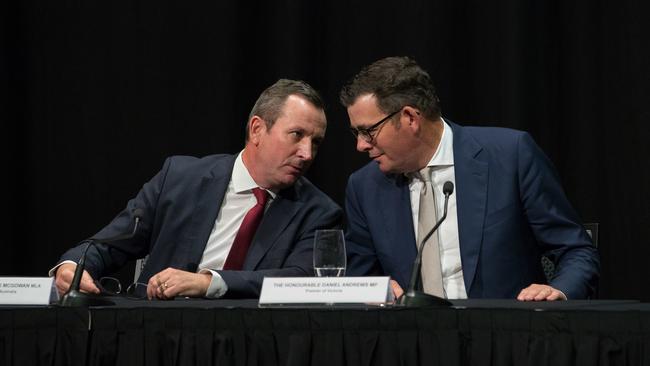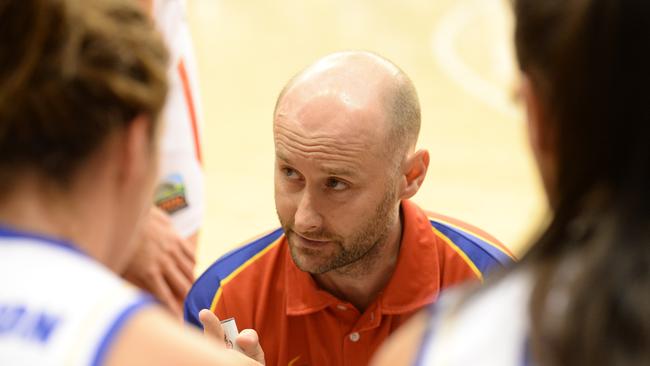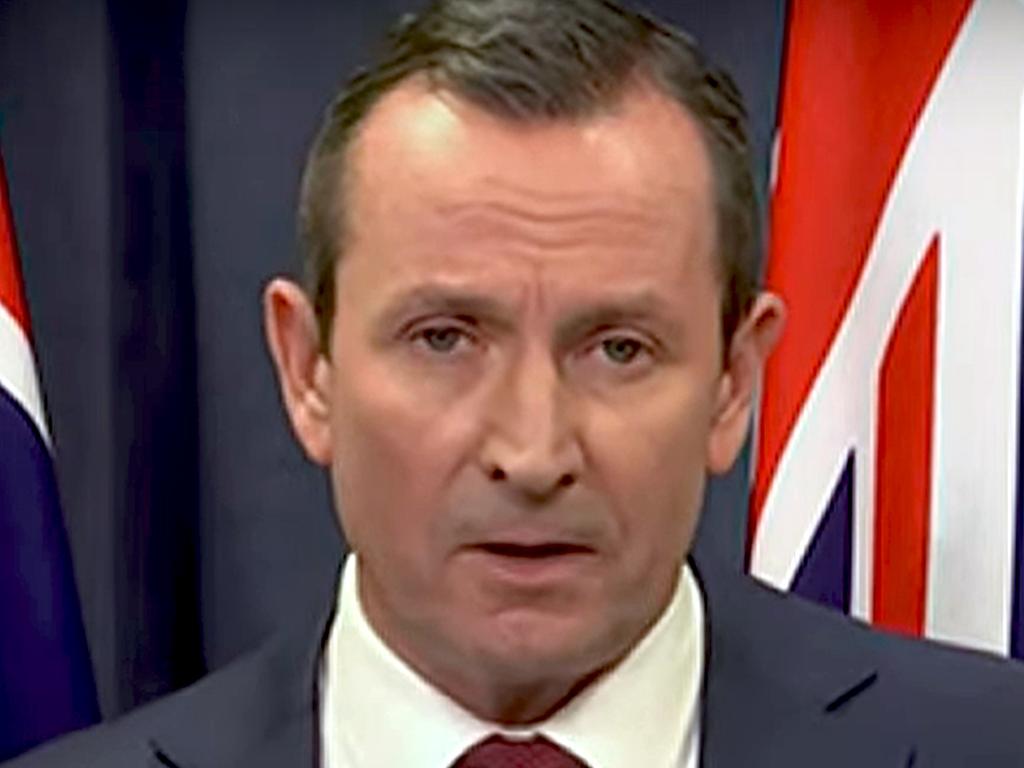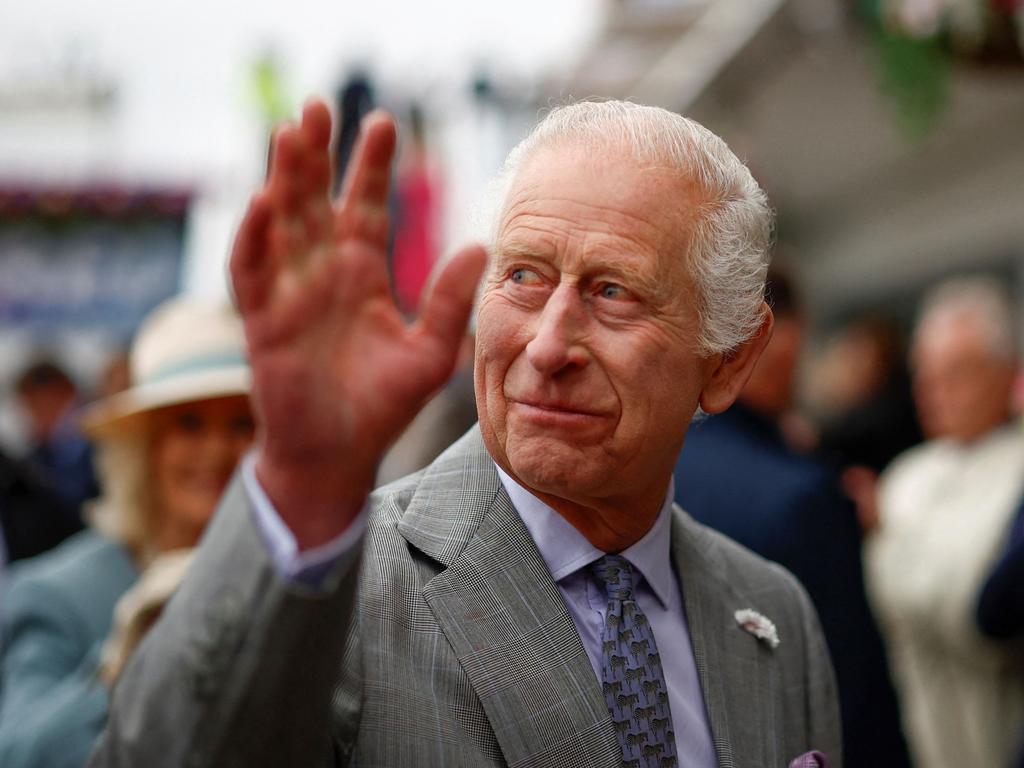Daniel Andrews and Mark McGowan made Companions of the Order of Australia
Australia’s most polarising Covid-era premiers have been awarded the nation’s highest honour, with both recognised for their health policies | FULL LIST

Australia’s most polarising Covid-era premiers have been awarded the nation’s highest honour, with both recognised for their health policies despite one presiding over one of the world’s longest lockdowns and a botched hotel quarantine program that led to the deaths of more than 800 people, and the other having closed the borders of his state for almost two years.
Daniel Andrews has received a Companion of the Order of Australia for “eminent service to the people and parliament of Victoria, to public health, to policy and regulatory reform, and to infrastructure development” while Mark McGowan receives the same award for “eminent service to the people and parliament of Western Australia, to public health and education, and to international trade relations”.
The former Labor leaders are the biggest winners from the 2024 King’s Birthday honours, along with incoming governor-general Samantha Mostyn. Other well-known recipients include cricket great Glenn McGrath, Future Fund chairman and former ALP minister Greg Combet, cancer researcher Karen Canfell, international arts boss Jonathan Mills. Late opposition leader and minister Simon Crean received a posthumous AC.
Both premiers were most prominent on the national stage at the height of the coronavirus pandemic in 2020 and 2021, and their citations for “eminent service … to public health” largely refer to these roles.
Mr McGowan’s citation for services to “international trade relations” comes after he pushed for a softer stance on China and labelled the Morrison government’s security-led position on the superpower “insane”; Mr Andrews’ citation for “policy and regulatory reform” and “infrastructure development” comes after he left his state budget on a trajectory to hit more than $187bn in net debt within the next four years.
Victoria’s representative on the 19-member body that considers nominations for the awards – the Council for the Order of Australia – is Department of Premier and Cabinet secretary Jeremi Moule. While The Australian is not suggesting Mr Moule has in any way acted improperly, his position on the council is likely to raise questions over the potential for a conflict of interest, given he was appointed to his $700,000-plus role as Victoria’s most senior public servant by Mr Andrews.

Mr Andrews, who has registered two companies since he left office last year, issued a statement this week saying he was “honoured to have been nominated” for his AC and “grateful to every Victorian who contributed to some of our state’s best times and who worked so hard to see us through our most challenging”.
“I thank the Victorian community for their support for me and my team in leading our state for nine years. That remains the greatest honour of my life,” he said.
Mr McGowan, who now has a number of consultancy and advisory roles, said in a statement he was “very humbled and honoured” to receive the award “and would like to thank whoever nominated me”.
“My deep gratitude goes to the people of WA for being so kind to me,” he said
Mr Andrews and Mr McGowan led the Labor Party in their respective states for more than a decade, with the Victorian serving as premier for almost nine years before resigning in September, and his West Australian counterpart spending six years in that state’s top job ahead of his resignation a year ago.
During the pandemic, Mr Andrews inspired admiration from some and loathing from others for an authoritarian approach to controlling the spread of the virus.
“You won’t be able to go to the pub because the pub is shut,” Mr Andrews famously said in one of his early Covid-19 press conferences in March 2020. “That doesn’t mean you can have all your mates around to (your) home and get on the beers, that’s not appropriate.
“It’s not essential, it’s not needed, and all it will do is spread the virus.”
Melburnians were subjected to six lockdowns totalling 262 days, with the restrictions at times extending to 8pm curfews and bans on children using playgrounds.
Victoria’s longest lockdown, which lasted 111 days from July to October 2020, was sparked by infection-control breaches in the hotel quarantine program established by the Andrews government. The hotel quarantine leaks ultimately led to the deaths of 801 people, including 642 in aged-care facilities.
An inquiry established by Mr Andrews and led by retired judge Jennifer Coate ultimately found that the Andrews government’s fateful decision to use security guards to enforce infection control was not made by any single person, but was the product of Victoria Police commissioner Graham Ashton’s preference that the role not be performed by police.
When Victoria’s final lockdown ended in October 2021, the state accounted for almost two-thirds of Covid deaths in Australia.
Mr McGowan’s award will similarly reignite debate about his handling of the pandemic in WA.
Under him, the state shut itself off from the rest of the country for almost 700 days, a move that caused heartache for families cut off from one another during that period but won him an extraordinary amount of popularity among state voters.
The border closure effectively kept Covid out of the state, allowed the mining industry to continue largely uninterrupted, led to the fewest days of lockdown of any state, and meant the vast majority of the WA population was vaccinated by the time Covid gained a foothold there. The border closures tapped into the West’s sense of parochialism and propelled Labor in 2021 to the biggest election victory of any party in Australian history – reducing the Liberals to just two of 59 lower house seats and giving his party absolute control over both houses of parliament – even as it fractured Mr McGowan’s relationship with members of the Morrison government and national cabinet colleagues such as then-NSW premier Gladys Berejiklian.
The citation’s mention of Mr McGowan’s services to health will raise eyebrows, given the state’s hospital system was arguably the biggest black mark of his time in office. WA’s health system groaned through the pandemic years with record-high levels of ambulance ramping, widespread cancellation of elective surgeries, and surging discontent among doctors and nurses.
The death of seven-year-old schoolgirl Aishwarya Aswath after she was left waiting for hours for help at the Perth Children’s Hospital became emblematic of the state’s health system woes.
In Victoria, Mr Andrews won three elections and earned a reputation as one of the most ruthlessly effective Australian politicians of the modern era, but less than a year after his departure from politics, the state is headed for $187.8bn in net debt by 2027-28 — more than the projected net debt of NSW, Queensland and Tasmania combined.
A significant source of the rising debt has been the ballooning of the public service, with a wage bill forecast to reach $39.9bn in 2027-28 — more than double the $18.7bn Labor inherited when it came to government in 2014.
Attempts to keep the debt in check have led to Victoria becoming the highest-taxing state in the nation, with the introduction of a raft of property taxes, as well as payroll tax levies to fund mental health initiatives and Covid debt repayment. Another key contributor to state debt has been blowouts in the Andrews government’s infrastructure “big build”.
Mr Andrews succeeded initially with the electorally successful level crossing removal program and the soon-to-open Melbourne Metro rail tunnel, but the government found itself increasingly unable to control spending. The level crossing removals, Metro tunnel, West Gate tunnel and countless smaller initiatives have collectively contributed to infrastructure cost blowouts totalling more than $40bn since Labor came to power.
The rising debt and a failure to foresee the cost of hosting the Commonwealth Games in regional Victoria in 2026 forced Mr Andrews into making an embarrassing decision to cancel them.
Meanwhile, doubts abound about the government’s capacity to build the former premier’s signature major infrastructure commitment, the Suburban Rail Loop, with the federal government so far committing $2.2bn for the $34.5bn first stage of the project, which Victoria’s Parliamentary Budget Office estimates could cost as much as $200bn to complete.
Labor under Mr Andrews implemented a range of policy and regulatory changes, including reforming rental laws, introducing voluntary assisted dying, enabling Victorians to choose the sex on their birth certificates, legalising medicinal cannabis, and establishing a state Indigenous voice to parliament.
Mr Andrews will also be remembered for his capacity to shrug off damning findings of multiple anti-corruption inquiries into his government, relating to government grants to unions, ALP branch-stacking and the premier’s personal links to a property developer.
With some questions arising over the role of his once-top civil servant on the honours committee, a spokesman for the Council of the Order of Australia said the organisation did not comment on individual considerations when asked whether Mr Moule recused himself in discussions about Mr Andrew’s AC.
“However, speaking generally decisions are made by consensus and informed by the original nomination and subsequent independent research. Council members may advise their colleagues of any prior relationship with a nominee,” he said.
Mr Moule, a former journalist and women’s basketball league commissioner, was promoted in October after his predecessor, Chris Eccles, resigned when it was revealed he had phoned Mr Ashton at the height of deliberations over the establishment of Victoria’s hotel quarantine program, contradicting his evidence to the inquiry into the failed scheme.
Beyond Covid, Mr McGowan’s key political achievement was securing the GST floor deal with the Turnbull government. That has guaranteed WA keeps at least 70c of every dollar of GST it raises and has delivered billions of extra dollars into the state’s coffers.





To join the conversation, please log in. Don't have an account? Register
Join the conversation, you are commenting as Logout